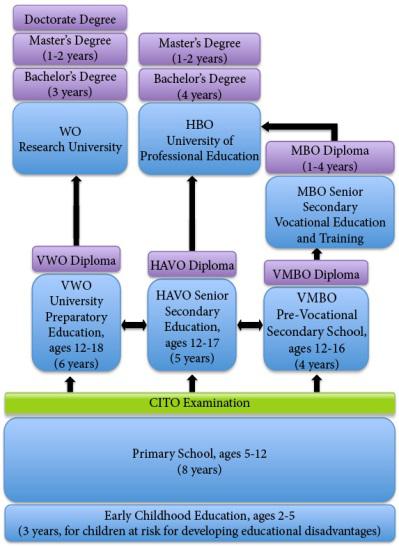Dutch school system
The education system in the Netherlands comprises a variety of types of schools and educational paths. Education is compulsory for children from the age of 5 until the age of 16, but most children start their primary education when they are 4 years old. A pupil who has not obtained a diploma by the age of 16 will be required to continue to attend school until he or she has obtained a diploma or reached the age of 18.
Schools are government funded but parents will be asked to contribute an amount for extracurricular activities. This is, on average, €45 per child per year in primary schools; about €100 per child per year in secondary schools. International schools do not receive government subsidies; they charge a tuition fee of between €4,000 and €20,000 a year.
The atmosphere at Dutch schools is rather informal. The teacher’s role is less authoritarian than in many other countries. For example, it is not unusual for pupils and teachers to call each other by their first names. How teachers and pupils address each other varies per school and even per teacher. This informal atmosphere is also seen in another aspect of school life: children don’t wear school uniforms.
Children are required to go to school 5 days a week. School hours may vary from school to school. Primary schools do not have cafeterias; children have to bring their own lunch to school or go home for lunch.
The chart below shows the structure of the education system, in outline form:
How does it work?
It is very important that you discover the best school and track for your child, in consultation with the school administrators. This process is likely to be time-consuming. You should begin your search as early as possible. A good starting point might be the International School Delft (primary and secondary) based on or close to TU Delft campus.
More information
If you are moving to the Netherlands with children, you might find useful information on the following websites:
